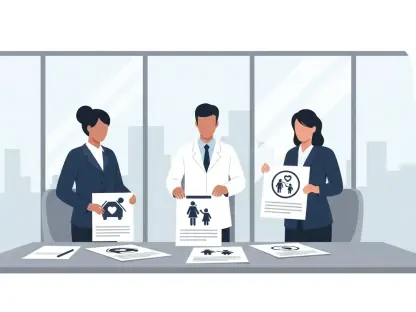In Louisiana, the state’s escalating auto insurance premiums have become a critical concern, inciting legislative debates and a series of reform bills aimed at addressing this pervasive issue. Central to these discussions, six key bills have been introduced during the fiscal session to overhaul current regulations and tackle the factors contributing to the state’s high insurance rates. Among the stakeholders is Insurance Commissioner Tim Temple, who, alongside industry groups and business advocates, has championed the proposed reforms. They argue that by reducing insurance payouts, these measures will ultimately lead to lower premiums for drivers across the state. The Advocate has reported significant progress, with five Senate-approved bills now setting restrictions on litigation concerning auto insurance claims, marking what Temple describes as a historic shift toward addressing Louisiana’s insurance crisis.
However, the introduction of these reforms has sparked considerable debate, underscoring tensions between varied interest groups, including legislators, insurance officials, trial lawyers, and government representatives. While proponents assert the necessity of these measures to address the state’s costly bodily injury claims, opponents like Sen. Jay Luneau, representing trial lawyers, raise concerns regarding the potential erosion of individual rights. Skeptics argue that such reforms may not guarantee reduced rates, as evidenced by previous legal adjustments in favor of the insurance industry that failed to lower premiums. As these bills progress through legislative scrutiny, the state’s path toward effective and fair insurance regulation remains a complex, divisive issue demanding careful consideration.
Stakeholder Perspectives and Legislative Dynamics
The legislative package draws attention not only for its bold proposals regarding insurance litigation but also for its potential implications on stakeholders involved. Among the most contentious is House Bill 148, which is notably supported by Republican Governor Jeff Landry. This bill seeks to enhance the power of the insurance commissioner, allowing them to reject proposed premium hikes even when backed by data. This provision has stirred dissent among various stakeholders, with Temple criticizing the bill as misleading for failing to address core issues such as the excessively high number of injury claims in Louisiana. Governor Landry’s stance appears to aim at shifting accountability for future rate increases away from Temple.
Other proposals among the legislative suite attempt to tackle specific areas affecting insurance costs. For instance, HB 431 is designed to eliminate compensatory damages for drivers more than 51% at fault in accidents. Meanwhile, HB 434 proposes raising the minimum award threshold from $15,000 to $100,000 for uninsured drivers’ bodily injury claims. Additionally, HB 436 seeks to limit general damage claims for undocumented immigrants injured in vehicle accidents, contingent on House agreement to Senate amendments. In the push for more precise accountability, HB 450 requires claimants to demonstrate that their injuries are directly resultant from the accident in question. Moreover, Senate Bill 231 introduces measures to increase transparency in the claims process by allowing juries to consider paid medical bills instead of just billed amounts.
Temple particularly lauds HB 431, HB 450, and SB 231 as crucial components in advancing the state’s efforts toward meaningful insurance reform. Despite the approval of the bills, some Senate Democrats remain steadfast in their opposition, referencing reports by the National Association of Insurance Commissioners that suggest local companies continue to post substantial profits, contradicting claims of economic necessity for such reforms. These conflicting views emphasize the complexity of the reform efforts as legislators strive to ensure these changes provide consumer benefits without disproportionately favoring the industry.
Challenges and Political Implications
The ongoing discourse surrounding Louisiana’s auto insurance reform is not only a legislative battle but also a reflection of broader political and economic dynamics within the state. As this reform package navigates through legal channels, fundamental issues like affordability and fairness take center stage, with various factions scrutinizing potential outcomes. A driving concern among opponents is that the bills, while positioned to curb unsubstantiated claims and litigation expenses, may inadvertently strip rights from individuals seeking redress following accidents. These apprehensions are particularly resonant among Democrats, who argue caution against rapid shifts inspired by industry lobbying, reminding stakeholders that prior pro-industry reforms have often not resulted in decreased premiums, further complicating the prospect of genuine rate relief for policyholders.
Governor Landry’s participation in the reform discussion adds an additional layer of political scrutiny and negotiation, as his administration balances measures to maintain insurance competitiveness while protecting consumer interests. The governor’s endorsement of specific legislative elements, like HB 148, highlights an ongoing concern over accountability mechanisms within the reforms. While both Landry and Temple acknowledge Louisiana’s high minor injury claims—twice the national average—they remain at odds over the most effective solutions to address these disparities without disproportionately impacting consumer rights.
Navigating Future Reforms
In Louisiana, rising auto insurance premiums have sparked significant concern, leading to legislative debates and calls for reform. Six major bills have been introduced to overhaul existing regulations and address the key factors behind the state’s high insurance rates. Insurance Commissioner Tim Temple, alongside industry groups and advocates, supports these reforms. They believe that reducing insurance payouts will ultimately lower premiums for drivers. According to The Advocate, progress has been made with five Senate-approved bills that impose restrictions on auto insurance litigation, a pivotal move Temple describes as a major step forward in tackling Louisiana’s insurance crisis.
Yet, the reforms have triggered intense debate, highlighting conflicts among various interest groups, including legislators, trial lawyers, and government officials. Supporters emphasize the need to address costly bodily injury claims, while critics like Sen. Jay Luneau worry about potential threats to individual rights. Skeptics point out that past adjustments favoring the insurance industry didn’t lead to lower rates. As the legislation undergoes scrutiny, the path to fair and effective insurance regulation in the state remains contentious and demands thoughtful evaluation.









